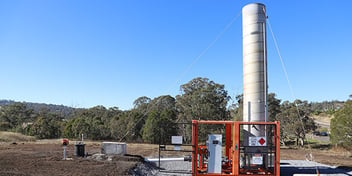Enhancing life and liveability in Melbourne
One of Victoria’s leading water utilities has announced a new pledge to halve its emissions by 2025 and explore pathways to reduce emissions to net zero by 2030.
Melbourne Water’s Path to Net Zero outlines actions planned across the business to reduce emissions while maintaining water supply security, optimal wastewater management and infrastructure.
Melbourne Water Managing Director Michael Wandmaker said the utility has been working towards lowering its emissions for some time, but has decided to take the step to pledge specific outcomes.
“We have already implemented exciting technology and actions to help meet our targets – with future innovative projects slated and underway to bring us closer to net zero by 2030,” he said.
The utility is currently constructing a new mini-hydro electricity plant at the St Albans Reservoir site and has plans to build two more by 2024.
The 400kW plant will convert energy from the pressure and flow of water going into the reservoir to generate electricity, which will be used to reduce operating costs and supply renewable energy to the grid.
Aside from investing in hydro power, Wandmaker said Melbourne Water has been capturing biogas from the sewage treatment process to produce renewable electricity, meeting 80% of the Western Treatment Plant’s and 30% of the Eastern Treatment Plant’s electricity needs.
“We are also creating additional biogas generating capacity at the Western Treatment Plant, which will boost its renewable electricity generation and will at times provide excess energy that can be returned to the power grid,” he said.
Furthermore, the utility is also investing in solar farming projects, utilising asset sites to make the most of renewable energy options currently available.
“Building on-site solar farms at the Eastern Treatment Plant in Bangholme and Winneke Treatment Plant to boost our renewable energy production are among other projects to help meet our targets,” Wandmaker said.
The utility is also transitioning to a 100% electric car fleet, with plans to reach the goal of removing fuel-run cars from the roads by 2030. Furthermore, the utility is maintaining a Six Star Green rating of its Docklands headquarters.
“By reducing our greenhouse gas impacts and generating more renewable energy, we are doing our bit to preserve Melbourne’s liveability,” Wandmaker said.
“This will be our legacy for our great city for generations to come. This is at the heart of our Path to Net Zero by 2030.”
Path to Net Zero also outlines a commitment to collaborating with global water experts to identify solutions to continually reduce emissions from wastewater treatment plants and share this knowledge with the broader sector.


